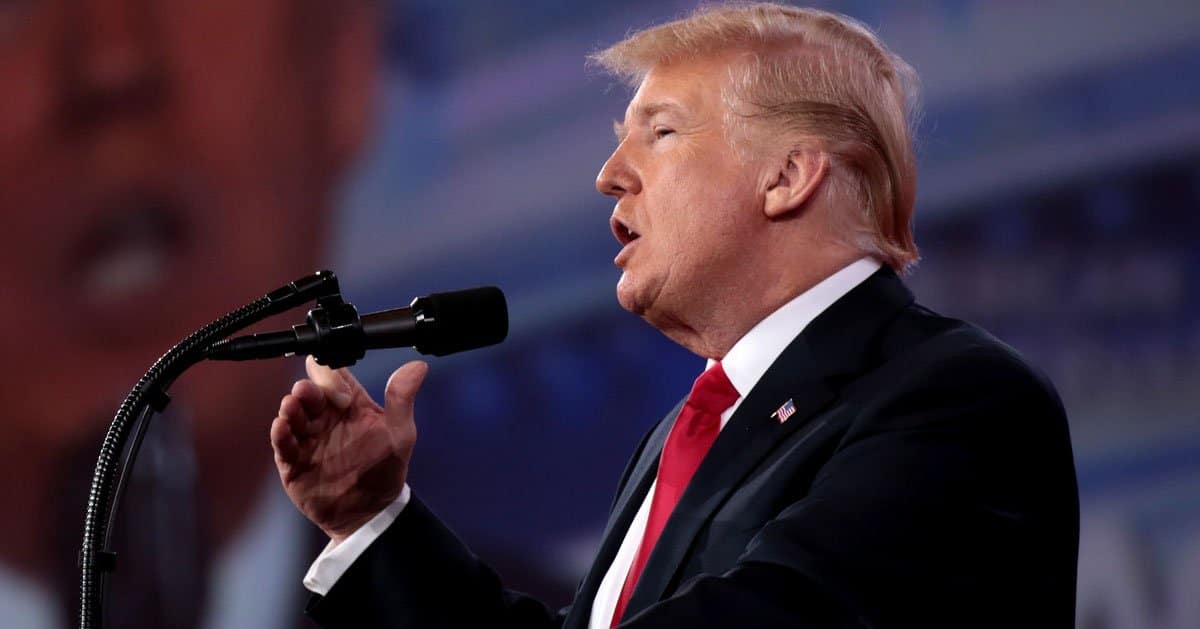






President Donald Trump has thrust America’s military might into the spotlight, confirming nuclear submarines are now positioned to counter Russian provocations.
Speaking at Lehigh Valley International Airport in Pennsylvania, he revealed the strategic move as tensions escalate with Moscow. This bold stance signals a no-nonsense approach to foreign policy, setting the stage for a high-stakes diplomatic showdown.
Fox News reported that on Friday, Trump ordered two nuclear submarines deployed in response to inflammatory remarks from former Russian president Dmitry Medvedev, who hinted at war with the U.S. The deployment aligns with a tight deadline Trump set for Russia to secure a ceasefire with Ukraine by Aug. 8, 2025, or face crippling sanctions and tariffs.
Medvedev, now deputy chairman of Russia’s Security Council, griped that Trump’s shortened ceasefire timeline—from 50 days to a mere 10 or 12—is an “ultimatum” risking conflict.
His mention of Russia’s Cold War-era “Dead Hand” nuclear system was a clumsy attempt to flex Moscow’s muscle. Such posturing only underscores why Trump’s submarine deployment is a necessary check on Russia’s bravado.
“I’ve already put out a statement and the answer is they are in the region, yeah, where they have to be,” Trump declared on Aug. 3, 2025, before boarding Air Force One. His confidence radiates a leader unafraid to confront adversaries head-on. Yet, the specter of nuclear rhetoric demands a steady hand, not reckless bravado.
Kremlin spokesman Dmitry Peskov tried to downplay the submarine deployment on Aug. 4, 2025, claiming it’s just routine U.S. naval activity.
“We don’t believe this is a case of any sort of escalation,” Peskov said, according to Meduza. His dismissal reeks of denial, as Russia’s actions—mock combat drills with China—tell a different story.
Peskov also urged “utmost restraint” on nuclear rhetoric, a laughable plea given Medvedev’s reckless “Dead Hand” reference. “We approach any statements related to nuclear issues with great caution,” he told The Moscow Times. If Russia truly valued caution, it wouldn’t be rattling sabers while cozying up to Beijing.
Russia and China’s deepening ties, cemented by a “no-limits” economic partnership since the 2022 Ukraine invasion, add complexity to Trump’s strategy.
China’s economic lifeline has helped Russia dodge Western sanctions, emboldening Moscow’s aggression. This alliance isn’t just a side note—it’s a direct challenge to U.S. influence.
The ongoing Joint Sea 2025 exercise, featuring Chinese guided-missile destroyers Shaoxing and Urumqi near Vladivostok, showcases this partnership’s military teeth.
China’s Defense Ministry spokesperson Zhang Xiaogang claimed the drills aren’t aimed at any nation. His assertion that they’re unrelated to global tensions is about as believable as a used car salesman’s pitch.
“The U.S. has been blindly flexing muscles in the Asia-Pacific region,” Zhang sneered, accusing America of undermining regional stability. Meanwhile, Japan’s Defense Ministry flagged China’s growing military cooperation with Russia as a serious security concern. The hypocrisy of China’s “peaceful” rhetoric while conducting war games is glaring.
Trump’s Aug. 8 deadline for a Russia-Ukraine ceasefire is a bold gambit to end a war that’s claimed countless lives. “A tremendous number of Russian soldiers have been killed. And likewise Ukraine, a lower number, but still thousands and thousands of people,” he said on Aug. 3, 2025. His blunt acknowledgment of the carnage cuts through diplomatic niceties, demanding action.
“Yeah, get a deal where people stop getting killed,” Trump told reporters when asked about special envoy Steve Witkoff’s upcoming Moscow visit.
Witkoff’s trip, expected on Aug. 6 or 7, 2025, carries the weight of Trump’s ultimatum. It’s a chance for Russia to choose de-escalation over further isolation.
Trump warned of secondary tariffs on nations buying Russian energy if the ceasefire deadline passes unmet. “Well, there’ll be sanctions, but they seem to be pretty good at avoiding sanctions,” he quipped, acknowledging Russia’s slippery tactics. His willingness to hit Russia’s economic allies shows he’s not playing checkers in a chess game.
The U.S. isn’t sitting idle while Russia and China flex. The Air Force’s Resolute Force Pacific exercise in the western Pacific, alongside Japan and other allies, demonstrates America’s readiness. This isn’t posturing—it’s a clear message that the U.S. will protect its interests and those of its partners.
“We stopped a lot of countries from war, India and Pakistan, we stopped a lot of countries,” Trump boasted on Aug. 3, 2025.
His claim of averting global conflicts may raise eyebrows, but his focus on ending the Ukraine war is undeniable. “This should be the easiest to stop, and it’s not,” he admitted, revealing a rare glimpse of frustration.

